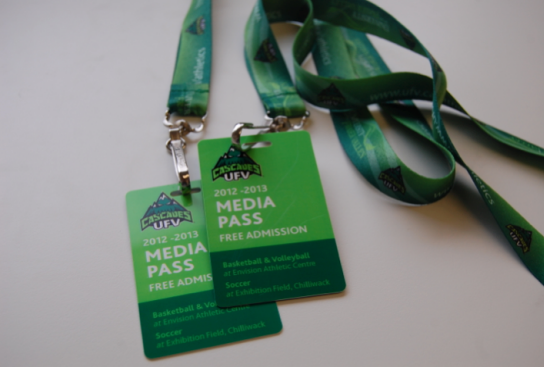By Nick Ubels (The Cascade) – Email
Print Edition: November 7, 2012

There is, or there should be, an old joke about two bystanders and a drowning man. The man cries for help and the the first bystander runs to his aid.
“Don’t worry, I’m a doctor!” she says and sets to pulling him out of the river.
Meanwhile, the second bystander pulls out a notepad and starts furiously scribbling. The doctor struggles and eventually pulls the man to safety. After the paramedics have arrived, the doctor approaches the second bystander and asks him why he didn’t provide a helping hand when it could have made a difference between life and death for the drowning man.
“I’m sorry,” he says. “But I’m a journalist.”
Okay, not very funny. Plus it’s an extreme example. But the point is clear: while one profession’s first instinct is to act, the other’s is to remain detached. A journalist is an observer, not a participant. Is that okay?
CNN makes heavy use of what’s known as citizen-journalists: everyday people who capture images and sounds of newsworthy events. Social media and portable tech have democratized access to the press by making the tools to create serious journalism available to almost anybody. This is a great thing. But if citizens can be journalists, I wonder whether journalists can finally be citizens.
Since the early 20th century, we’ve insisted that our news come unfiltered and objective. It’s an impossible task. Everything about the news is the result of a series of decisions. These decisions are made every step of the way by writers, editors, and designers, people we trust not to deliberately mislead us. Yet these decisions are rooted in a set of beliefs or values the decision maker holds This can be something as simple as deciding which stories are newsworthy, the placement of stories, and down to who’s interviewed and presented as representing the public voice. Yet we still clamour for our news to be objective, and any hint that a journalist might hold personal views on a particular, topic can be seen as compromising the credibility of the news we receive. Some media even go so far as to bar their reporters from the editorial page.
Essentially, we expect journalists to exist as detached observers in our society, rather than active members, at least in the public sphere.
One big threat to this journalism institution is that the barrier between the public and private spheres is rapidly deteriorating thanks to Facebook, Twitter, you name it. If I like a Facebook page that says, “Keep AfterMath open” and then write a news story about the funding disaster, a big chunk of people are going to write off my story as biased and not worth their time.
Journalists should be driven by their convictions. Their first goal should be the truth and sometimes that means avoiding a conflict of interest when a story is assigned.
We should value the gift of subjectivity and inject a little more soul into our journalism. Journalists need to be citizens. They need to be humans. They need to see and feel and empathize just as much as the rest of us in order to represent our interests on the page.
Passion and objectivity are not mutually exclusive, though they are often painted that way. Journalism is at its best when it strikes a balance between the two. Unfortunately, things too often veer to either side of the spectrum.

